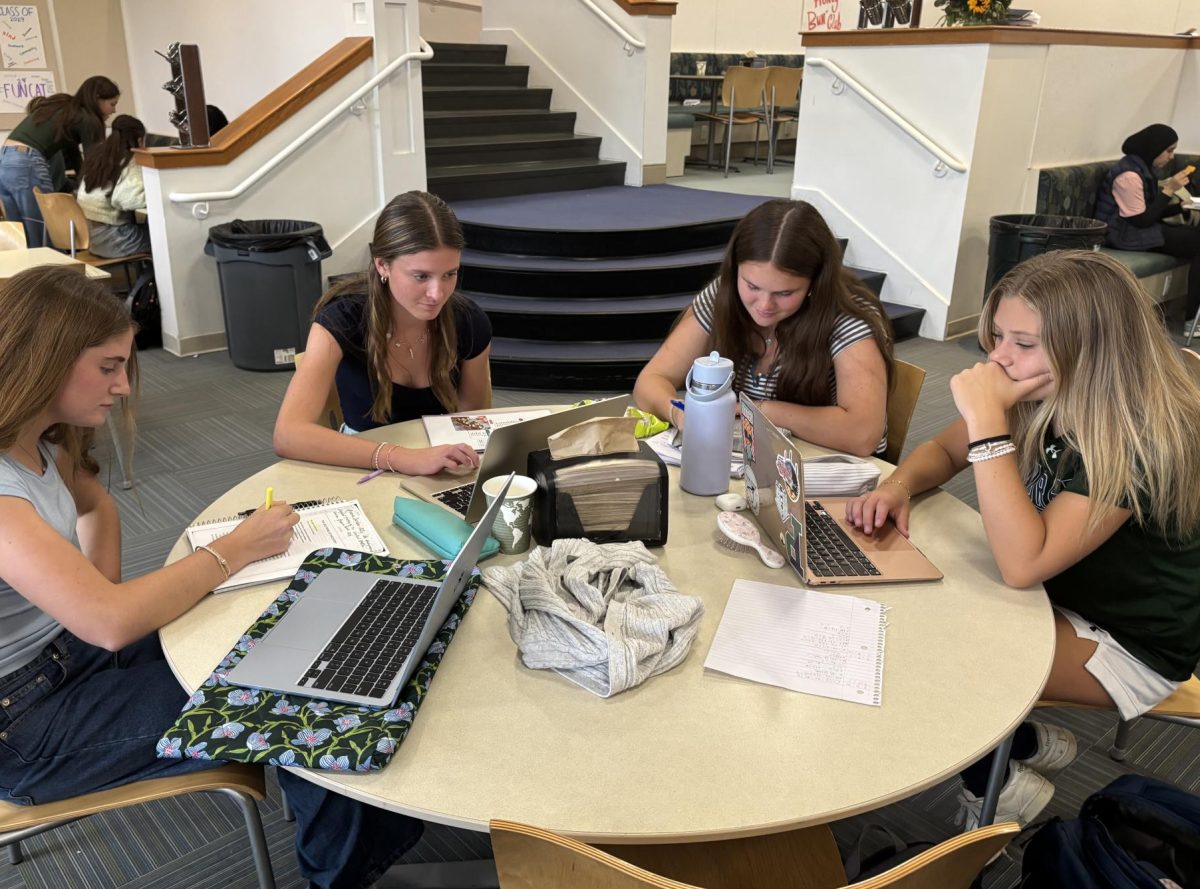If you are a Pingree student that has been here in the past four weeks, you have noticed the cell phone “limitations” that are in the Pond Room and the Commons. Every student, including me, has been affected in some way by the new cell phone policy.
The Pond Room and the hallways, as of last year, were still filled with phones, but at the start of the new school year, Pingree administrators wanted to make a change.
However, it’s not just at Pingree. All around the country, phone limitations – including bans – have been spreading among schools. Students at New York public schools have to place their cell phones in Yondr Pouches, bell to bell, every single day. Across the U.S, public schools in 17 states (plus D.C and the Virgin Islands) have adopted a full-on, bell-to-bell ban on cell phones every day. Fifteen states, including Massachusetts, either have a partial ban or let local school districts decide their phone policies.
Mr. Moran, Pingree’s dean of students, said that the goal of the new cell phone policy ”is to lean into the values that build Pingree’s strong community.” Moran saw students using their phones excessively and wanted to make a change. He wanted to “carve out time for interpersonal connections between students.” What better place to do that than the two most popular spots in the school – the Commons and the Pond Room?
From the school’s perspective, is the cell phone policy achieving its goal? Every day, at least one student has their phone taken, and sometimes, the box in the front office is almost full. However, Mr. Moran actually feels very good about the progress so far. He believes that rather than showing noncompliance with the policy, “most people are just trying to break old habits.”
Do the students actually like the new cell phone policy? The answers were pretty surprising.
Lachlan (Lock) Moulton, a freshman, came from Ipswich Middle School. Like a lot of other middle schools, Ipswich had incredibly strict rules about phones. If any faculty member even saw a glimpse of a phone, it was detention and a visit to the principal’s office. Moulton, like most freshmen, spends most of his time in the Pond Room. He believes that even though it can be annoying sometimes, the cell phone policy is actually helpful for creating connections. Moulton believes that “everyone sitting at a table [without phones] is important for making bonds with people.”
Junior Minh Do has watched the phone policy evolve here at Pingree. Do said that without phones, people are maybe socializing a little bit more than before, but they are also finding more creative ways to use other devices without their phones. In terms of social connection, Do thinks that “there hasn’t really been a change.” But he believes that the phone ban is doing the job it was set out to do, and that currently, there are no better alternatives.
Senior Jaime Moore has been here since ninth grade, and he has seen the cell phone limitations become more strict over the years. Moore has seen behavioral changes over the year between both new students and returning students. Like the other interviewees, he believes that the phone ban isn’t exceptional but it is doing its job. Moore notes that every time he walks by an underclassmen, they are actually communicating instead of just staring down at their screens. Even he himself is speaking a bit more with more underclassmen as a result of the policy. He notes that the Commons are louder, with more people creating bonds instead of just being glued to the phones. Moore believes that although it is working, there could be some changes made to it, like students being able to use their phones during their H-Block breaks.
Malcolm Toulouse, a sophomore, had the most contradictory answers. Toulouse believes that although he sees people off their phones, they are not making connections like they used to. Instead of sending TikToks to one another and laughing about it, they are nose deep in work, just typing away on their computers. Toulouse has seen fewer people getting distracted by their phones, but also fewer people having genuine joy. He has seen such a fear of the consequences, especially for the second and third times, that people are hesitant to even glance at their schedule.
So all in all, most Pingree students believe that the new policy is keeping students off their phones and encouraging more social interactions. There are definitely some refining details that could be changed, but in general, it has been a pretty good experience so far.








